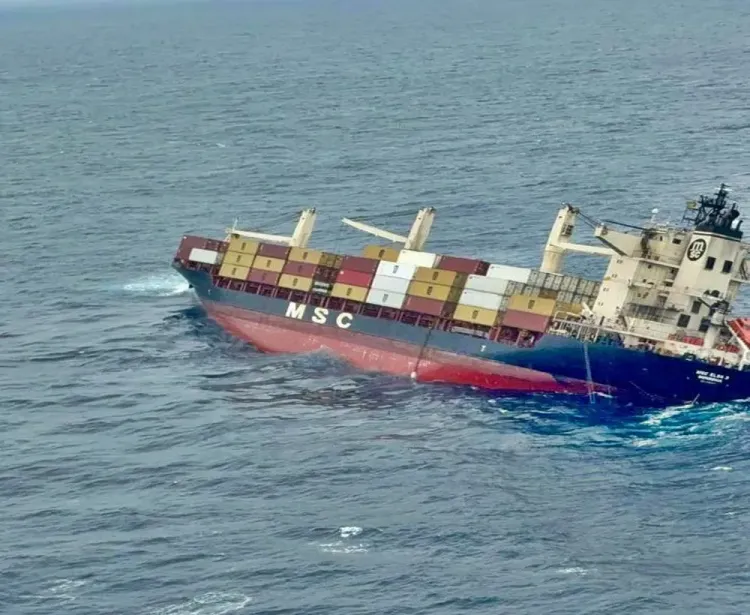Is the Capsizing of the Liberian Ship M/s ELSA 3 a State-Specific Disaster?

Synopsis
Key Takeaways
- The wreck of M/s ELSA 3 has been declared a state-specific disaster.
- Environmental concerns are high regarding oil spills and debris.
- The Kerala government is considering legal action against ship owners.
- Research is underway by CMFRI to study the marine impact.
- Local fishermen fear for their livelihoods and marine health.
Thiruvananthapuram, May 29 (NationPress) The government of Kerala has officially categorized the wreck of the Liberian vessel M/s ELSA 3, located in the Arabian Sea at a distance of 14.6 nautical miles from the Kerala coastline, as a state-specific disaster.
A statement from Chief Minister Pinarayi Vijayan indicated that the M/s MSC ELSA-3, which was transporting over 643 containers, capsized on May 25 near Thottappalli in the Alappuzha District.
This maritime incident has triggered significant environmental worries, particularly regarding the potential for an oil spill and the drifting of debris and cargo along the Kerala shoreline. Given the serious environmental, social, and economic implications of this shipwreck, the government has declared the wreckage of M/s ELSA 3 as a state-specific disaster.
This development emerges as the Kerala authorities are considering legal action against the ship's owners after fishermen's associations have called for appropriate compensation, expressing concerns that the chemicals from the wreck could inflict long-lasting damage to marine ecosystems and threaten their livelihoods.
The Vijayan administration is currently awaiting advice from marine legal experts to proceed with necessary legal actions.
On Thursday, containers that had been removed from near the coast of Kollam and were being prepared for transport caught fire, but the blaze was rapidly extinguished.
The vessel, which had been reported listing approximately 38 nautical miles off the Kochi coast, ultimately sank into the Arabian Sea early Sunday morning.
In a related initiative, the ICAR-Central Marine Fisheries Research Institute (CMFRI) initiated a study on Thursday to evaluate the alterations in the marine environment following the shipwreck.
This research is being conducted by four teams across the coastal regions of Ernakulam, Alappuzha, Kollam, and Thiruvananthapuram districts, collecting water, phytoplankton, and sediment samples from ten stations in these areas at regular intervals.
According to CMFRI Director Grinson George, the study aims to assess various types of marine pollution linked to the shipwreck.









